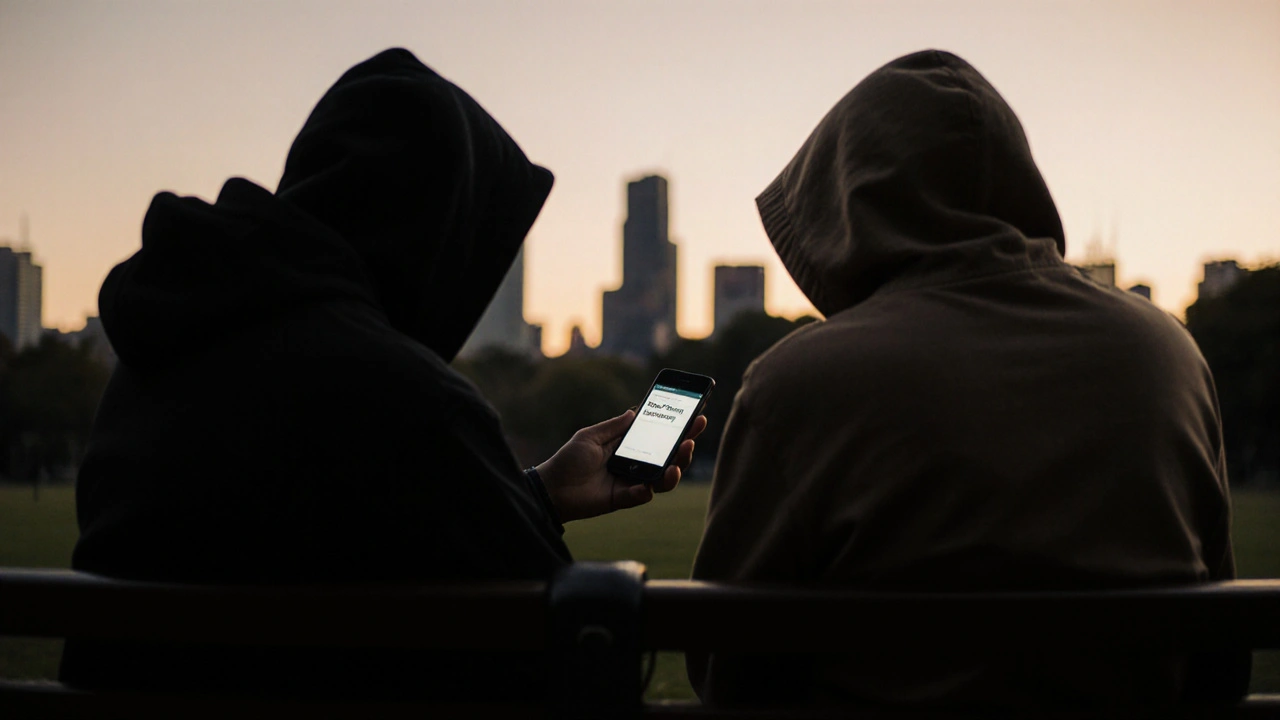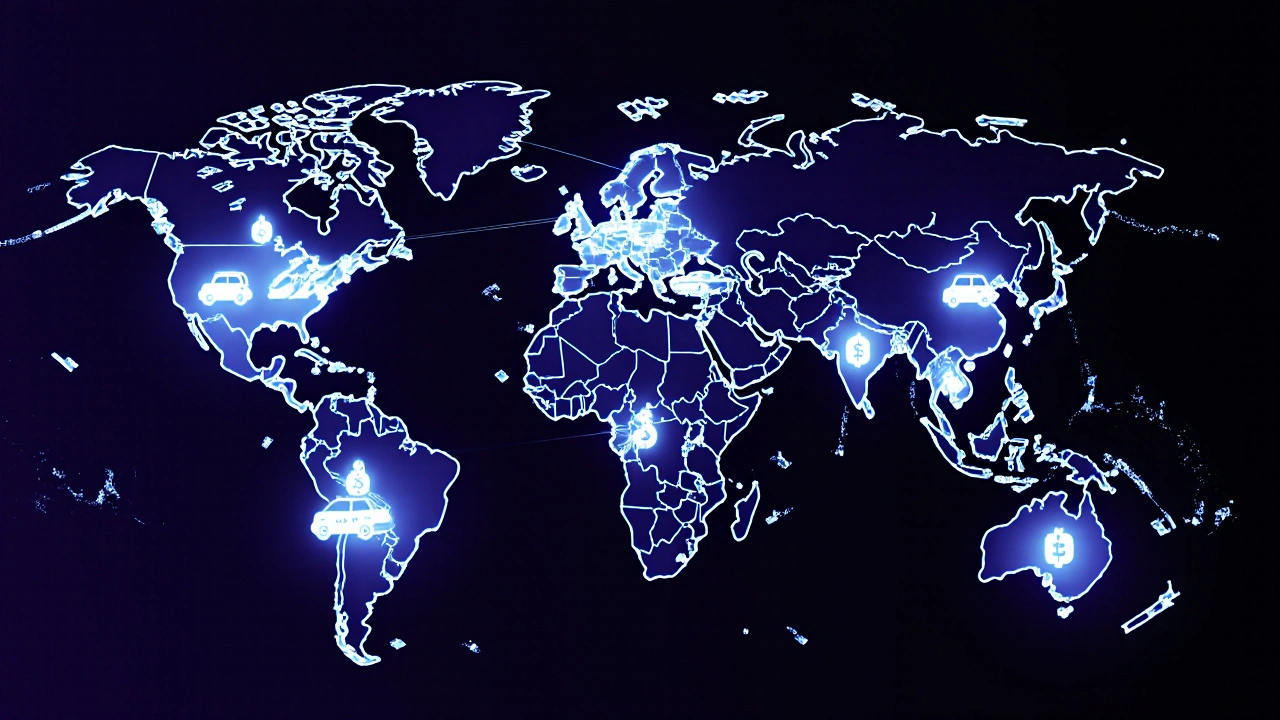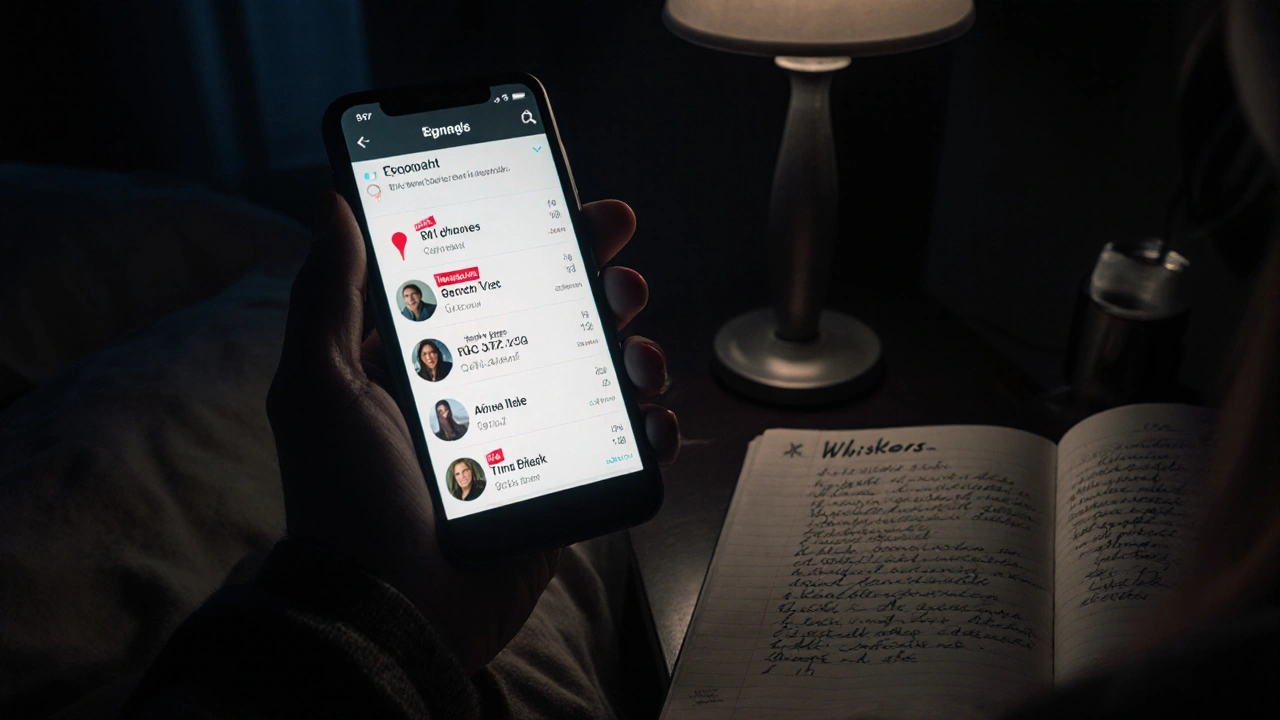Every year, dozens of sex workers around the world disappear or are harmed by clients who lied about who they were. Some of these cases could have been prevented-not with police intervention, not with legal reforms, but with something simple: a bad date list.
What Exactly Is a Bad Date List?
A bad date list is a shared, private database of dangerous or abusive clients. It’s not a public blacklist. It’s not a revenge tool. It’s a survival mechanism. Sex workers collect names, phone numbers, vehicle details, addresses, and descriptions of behavior from clients who have threatened, assaulted, stolen from, or manipulated them. They share this information-often through encrypted apps or password-protected forums-with other workers in their area or network. These lists aren’t new. They’ve been around since the 1980s, passed along in handwritten notebooks, then on fax machines, then via email chains. Today, they live in Signal groups, encrypted Telegram channels, and private apps like RedFlag is a mobile app built by and for sex workers to report dangerous clients using geotagged entries and anonymous verification. The goal is simple: warn others before they meet someone who’s already hurt someone else.Why Do Sex Workers Need These Lists?
Most clients aren’t dangerous. But a small number are. And when you’re working alone, often in unfamiliar places, without legal protection, one bad encounter can be deadly. Police rarely intervene unless someone is physically injured or killed. Even then, many sex workers avoid reporting because they fear being arrested, deported, or disbelieved. In 2023, a study by the Global Network of Sex Work Projects found that 68% of sex workers in countries where sex work is criminalized had experienced violence from a client. Of those, only 12% reported it to authorities. The rest relied on peer networks to avoid repeat incidents. That’s where bad date lists come in. They work because they’re trusted. A worker won’t risk her safety by trusting a stranger’s opinion. But if three other workers say the same man tried to choke them, took their phone, or showed up with a weapon, that’s not gossip-that’s data.How Are These Lists Organized?
There’s no single format. Every group does it differently. But most follow a few basic rules:- Details matter: Just a name isn’t enough. You need a phone number, car make and plate, a physical description, and the exact time and location of the encounter.
- Behavior, not judgment: Lists focus on actions: “threatened with knife,” “refused to pay,” “broke into my apartment.” Not “he was creepy” or “he looked sketchy.”
- Verification: Entries are often cross-checked. If two workers report the same person using matching details, the entry gets flagged as verified.
- Updates: If someone is arrested, deported, or stops being a threat, the entry is updated or removed.
How Do Sex Workers Use These Lists Before a Date?
Before meeting a new client, most workers do three things:- Check the client’s phone number against the list. Many use apps that auto-scan incoming calls or texts.
- Search the client’s name or email in private forums. Some groups have searchable archives going back years.
- Ask a trusted colleague: “Have you ever met this guy?” Even a quick message in a private group can save a life.

What About False Reports?
People worry about abuse. What if someone adds a client just because they didn’t like the price? Or because they’re jealous? That happens-but rarely. Most groups have systems to prevent it. If someone submits a vague report like “he was rude,” it gets rejected. Only concrete, verifiable actions are accepted. Some groups require a second worker to confirm before an entry is posted. Others use digital signatures or time-stamped reports tied to location data. And here’s the thing: workers have no incentive to lie. False reports waste time. They erode trust. And if you’re caught gaming the system, you’re banned from the network. That’s a real risk. Without access to these lists, you’re alone.Legal Risks and Ethical Concerns
In places where sex work is illegal, bad date lists are technically evidence of criminal activity. Police have raided homes and seized phones looking for them. In 2022, a sex worker in Sydney had her phone confiscated during a routine check. The list was found. She was questioned for hours. No charges were filed-but she lost her phone, her contacts, and her ability to screen clients for months. Some workers use burner phones or encrypted storage. Others keep lists offline, written in code. “I use the names of my cats,” one worker told me. “If you see ‘Whiskers’ on the list, it’s not a pet. It’s a predator.” Ethically, these lists aren’t about punishment. They’re about prevention. They don’t name names publicly. They don’t call the police. They don’t shame. They just say: “This person is dangerous. Don’t meet them alone.”What If You’re New to This?
If you’re just starting out, you don’t need to build a list. You need to join one. Start by connecting with local sex worker collectives. In Australia, groups like Scarlet Alliance is a national sex worker advocacy organization that provides safety resources, peer support, and access to confidential client screening tools. or SWOP Perth is a peer-led organization offering safety training and encrypted access to regional bad date lists for sex workers in Western Australia. can connect you to verified networks. Never rely on public forums like Reddit or Facebook. Those are monitored. Those are full of bots. Those are traps. Use encrypted apps. Use code words. Use silence when needed.
How These Lists Are Changing
The tools are getting smarter. Apps now let you mark a client as “low risk” or “high risk” based on behavior patterns. Some integrate with GPS to alert nearby workers if someone enters a known red zone. Others use voice recognition to flag when a client says threatening phrases like “I’ll kill you” or “I have a gun.” In 2024, a pilot program in Vancouver used blockchain to store encrypted, timestamped reports. Workers could verify entries without revealing their identity. No central server. No police access. No hacks. Just peer-to-peer safety. These aren’t sci-fi ideas. They’re being used right now.Why This Matters Beyond Sex Work
Bad date lists aren’t just for sex workers. They’re a model for how marginalized communities protect themselves when systems fail. Domestic violence survivors use similar networks. Migrant workers share lists of abusive employers. Ride-share drivers have their own versions. The lesson? When institutions won’t protect you, people will protect each other. And sometimes, that’s the only thing that keeps you alive.It’s not glamorous. It’s not legal. But it works.
Are bad date lists legal?
It depends on where you are. In places where sex work is criminalized, these lists can be used as evidence against workers. But the act of sharing safety information isn’t illegal in itself. Many workers store them on encrypted devices or use code to avoid detection. In countries where sex work is decriminalized, like New Zealand, these lists are openly discussed and supported by health services.
Can I trust a bad date list I find online?
No. Public lists on forums, Reddit, or social media are unreliable. They’re often outdated, full of false reports, or monitored by law enforcement. Only use lists shared through encrypted apps or trusted peer networks you’ve verified in person or through mutual contacts.
Do bad date lists lead to harassment or doxxing?
Not if they’re managed properly. Legitimate lists never publish names publicly. They’re private, encrypted, and only shared with verified workers. The goal is to prevent harm-not to punish or expose. Workers who violate this rule are expelled from the network.
What should I include in my own bad date report?
Focus on facts: exact time and location, full phone number, vehicle details, physical description, and specific dangerous behavior (e.g., “threatened with knife,” “refused to pay,” “tried to force me to go to a second location”). Avoid opinions like “he was creepy.” Stick to what happened.
How do I join a bad date list network?
Start by reaching out to local sex worker organizations like Scarlet Alliance or SWOP. They can connect you to verified, encrypted groups. Never join public Facebook groups or Reddit threads. Those aren’t safe. Use Signal or Telegram with end-to-end encryption, and never share your real name or location until you’re sure of the group’s trustworthiness.
